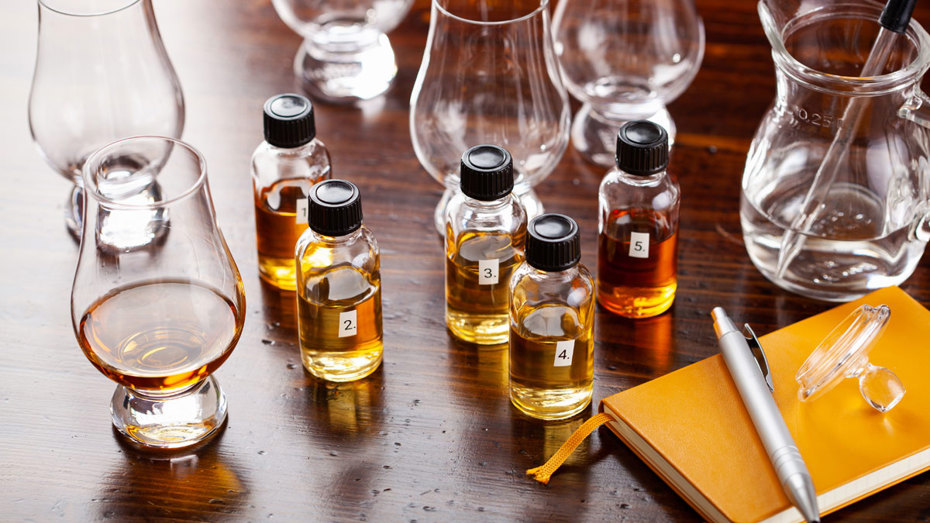In the world of bourbon, the master distiller holds a position of revered status, akin to an artist or a conductor. The title carries with it a blend of tradition, skill, science, and a touch of alchemy. A master distiller is not just a job title; it's a role that involves a deep understanding of the intricate process of making bourbon, an unwavering commitment to quality, and a visionary approach to innovation. This article explores the multifaceted role of the master distiller in crafting the perfect bourbon.
Facets of the Master Distiller Role
- Guardian of Tradition
At the heart of every bourbon is a story, a tradition passed down through generations. The master distiller is the guardian of this legacy. They ensure that the centuries-old methods of bourbon production are preserved, from the selection of grains to the nuances of the fermentation process. This commitment to tradition is not just about maintaining quality; it's about honoring the history and culture that bourbon embodies. - The Science and Art of Bourbon Making
The creation of bourbon is a delicate balance of science and art. Master distillers possess an extensive knowledge of chemistry and biology, which is crucial in understanding the fermentation and distillation processes. But beyond the science, there is an art to making bourbon. It involves intuition and experience – knowing how to bring out the desired flavors, aromas, and textures, and understanding how different variables will interact over time. - Ingredient Selection and Mash Bill Creation
The foundation of any bourbon is its mash bill – the recipe of grains used in its production. Master distillers carefully select the types and proportions of corn, rye, barley, or wheat. Each grain contributes distinct flavors, and the skill lies in creating a blend that achieves the desired taste profile. This process requires a deep understanding of how different grains influence the final product. - Overseeing the Fermentation Process
Fermentation is where the magic begins, turning sugars into alcohol. Master distillers oversee this process, ensuring the right conditions for the yeast to thrive. They must monitor temperature, pH levels, and other factors that affect fermentation. The choice of yeast strain is also crucial, as it significantly influences the flavor profile of the bourbon. - Mastery of Distillation
Distillation is a critical step in defining the character of the bourbon. Master distillers oversee the distillation process, deciding when to make the cuts between the heads, hearts, and tails. This requires precision and timing – knowing exactly when to capture the heart of the distillate, which holds the best flavors and aromas. - The Art of Aging and Maturation
One of the most critical roles of a master distiller is managing the aging process. They decide how long the bourbon should age, and in what kind of barrels. The interaction between the bourbon and the charred oak barrels is what gives bourbon its color and many of its distinctive flavors. The master distiller must understand how different aging conditions – such as temperature and humidity – will affect the bourbon's development. - Quality Control and Consistency
A master distiller is responsible for ensuring consistency and quality in every batch. They must have a refined palate to taste and evaluate the bourbon at different stages, ensuring that it meets the distillery's standards. This role involves a blend of sensory skills and scientific knowledge, ensuring that each bottle that leaves the distillery is up to par. - Innovation and Experimentation
While tradition is vital in bourbon making, innovation is equally important. Master distillers experiment with new techniques, ingredients, and aging processes to create unique and exciting products. They push the boundaries of traditional bourbon making, experimenting with different grains, barrel finishes, and aging environments. - Educator and Ambassador
A master distiller also serves as an educator and ambassador for the bourbon industry. They share their knowledge and passion for bourbon through tours, tastings, and public speaking events. In doing so, they help to cultivate a deeper appreciation for bourbon and its rich history. - The Future of Bourbon
As the bourbon industry continues to grow and evolve, the role of the master distiller will become even more crucial. They are the visionaries who will guide the industry forward, blending the wisdom of the past with the innovation of the future to create bourbons that continue to captivate and delight enthusiasts around the world.
Conclusion
The role of the master distiller in crafting bourbon is a blend of science, art, and stewardship. It is a role steeped in history and tradition, yet constantly evolving. The master distiller's commitment to quality, their deep understanding of the bourbon-making process, and their passion for innovation are what make each bottle of bourbon a testament to their skill and dedication. As bourbon continues to gain popularity globally, the master distiller's role will remain pivotal in shaping the future of this iconic American spirit.

